In the unprecedented times of COVID-19, a completely different set of consumer behaviors has been witnessed by markets globally. Understanding new behaviors and coping with the new mindsets and expectations of the consumers is the top concern in every industry. The contagious disease has caused mayhem in both our personal as well as professional lives leading to massive losses in almost every business sector across the world. The banking sector has not been spared of these unparalleled losses. As per a report by OCED, the overall losses in the banking sector can exceed the 2008 global financial crisis by 60%
With such a major impact on the banking sector, clearly agency banking, which is a crucial method of financial inclusion for developing countries has not been spared from the wrath of the pandemic. Agents of financial institutions across the globe are facing the effect of the pandemic and are experiencing lowered incomes and transactions. Also, as the banks and financial institutions have been working remotely, the support agents are getting is very limited.
5 Low-Touch Practices in Agency Banking
To survive the pandemic, businesses across sectors must come up with unthinkable ideas to accommodate the ‘new normal’ and the changed consumer behavior. An immediate transformation in the agent banking infrastructure that promotes low-touch practices can salvage the banks, agents as well as people staying in rural areas. Let’s look at the 5 transformational steps banks can take to entail low-touch practices while delivering agency banking services.
Allowing Agents to Offer Merchant Services
The current agent banking models restrict the agents to provide services like cash-in and cash-out only. By allowing the agents to offer merchant services too in the rural areas, banks can promote low-touch practices. Thus, agents can offer QR code payments and contactless NFC payments to the bank customers that stay in remote areas.
Further on, as most of the industries, including banking are now working from home, agents can be used as a medium to offer additional services that were earlier exclusive to branches. These services could include bill payments, customer onboarding, remittances, government cash disbursements, etc.
Adapting Digital Communication for Agent Management
In the pre-COVID era, agent managers used to frequently meet with their agent network to provide support and guidance. However, such meetups are not possible now. Therefore, by adapting chatbots and messengers this physical interaction can be reduced/eliminated between the agents and their supervisors until the situation demands.
This will allow banks and financial institutions to provide the required guidance and support to its agent networks in real-time resulting in enhanced customer experience. Besides, by employing digital communication the operating cost of the agent network will reduce too.
Employing No-touch Authentication Methods
One of the risky tasks in the current scenario is the customer’s authentication due to the required physical interactions. To protect the agents and the customers, banks and financial institutions can switch to face recognition biometric verification from fingerprint verification. Additionally, agents must ensure that the biodevices are safe and clean after every individual use. Another way of customer authentication can be OTP or other methods that can be used by the customers directly through their banking application or a mobile wallet.
Conducting Onboarding Process of New Agents Digitally
Traditionally, the onboarding process of new agents requires a ton of paperwork. Banks can carry out this process by leveraging no-touch tool like a mobile application to avoid any kind of physical interaction in the times of the COVID-19 pandemic. Further on, the training of the new agents can be done through training videos or other digital channels.
Taking Required Social Distancing Measures
It is crucial that banks and financial institutions train their agent network via digital communication about social distancing measures to ensure safe operations. As agents have a long-standing relationship with the end-customers in remote areas, banks educating customers about their financial service offering via agents.
Upgrading Remote Areas by Deploying Digital Financial Solutions
Agency banking is widespread in countries where cash still rules and where financial inclusion of rural people is yet to be achieved. Most transactions in rural areas take place through cash with the help of agents. In the times of the COVID-19 pandemic, agents of banks and financial institutions can help rural adoption of digital financial solutions. This will not only modernize the rural payment methods but also provide safety from the widespread disease.
Agency Banking services by Panamax makes it easy for the banks to create new accounts, new applications, edit loans, and do a lot more for their rural customers. Through its user-friendly online dashboard, the solution allows banks to manage and monitor the growth of multiple agents working in remote areas. It allows banks to implement all the essential and value-added services too. Through its Agency Banking services, Panamax offers different flavors of agency banking that ensure that the regulatory compliance of your country is followed. To learn more about different flavors through Agent Banking video
Related Blogs
Why is Agency Banking the Silver Bullet for Financial Inclusion?
4 Primary Ways COVID-19 has Impacted FinTech Industry


















